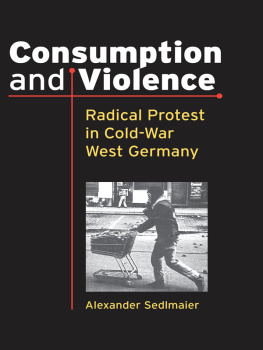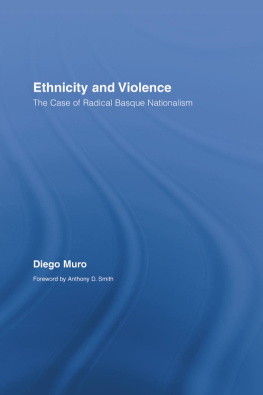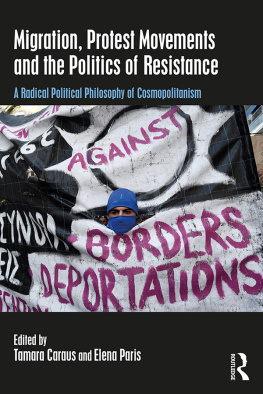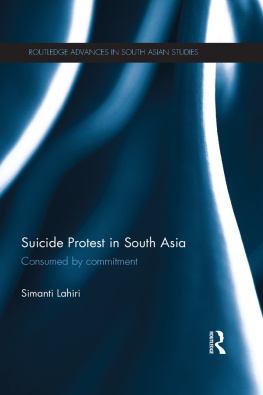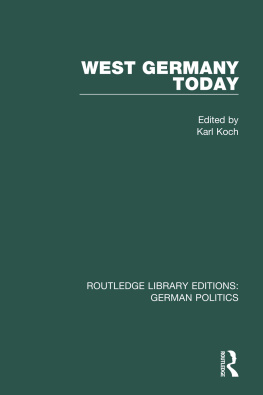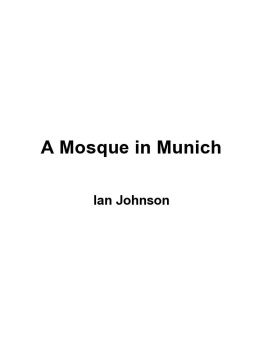Sedlmaier - Consumption and Violence: Radical Protest in Cold-War West Germany
Here you can read online Sedlmaier - Consumption and Violence: Radical Protest in Cold-War West Germany full text of the book (entire story) in english for free. Download pdf and epub, get meaning, cover and reviews about this ebook. year: 2018, publisher: The University of Michigan Press, genre: Politics. Description of the work, (preface) as well as reviews are available. Best literature library LitArk.com created for fans of good reading and offers a wide selection of genres:
Romance novel
Science fiction
Adventure
Detective
Science
History
Home and family
Prose
Art
Politics
Computer
Non-fiction
Religion
Business
Children
Humor
Choose a favorite category and find really read worthwhile books. Enjoy immersion in the world of imagination, feel the emotions of the characters or learn something new for yourself, make an fascinating discovery.
Consumption and Violence: Radical Protest in Cold-War West Germany: summary, description and annotation
We offer to read an annotation, description, summary or preface (depends on what the author of the book "Consumption and Violence: Radical Protest in Cold-War West Germany" wrote himself). If you haven't found the necessary information about the book — write in the comments, we will try to find it.
Sedlmaier: author's other books
Who wrote Consumption and Violence: Radical Protest in Cold-War West Germany? Find out the surname, the name of the author of the book and a list of all author's works by series.
Consumption and Violence: Radical Protest in Cold-War West Germany — read online for free the complete book (whole text) full work
Below is the text of the book, divided by pages. System saving the place of the last page read, allows you to conveniently read the book "Consumption and Violence: Radical Protest in Cold-War West Germany" online for free, without having to search again every time where you left off. Put a bookmark, and you can go to the page where you finished reading at any time.
Font size:
Interval:
Bookmark:
 Page i Page ii
Page i Page ii Social History, Popular Culture, and Politics in Germany
Geoff Eley, Series Editor
Series Editorial Board
Kathleen Canning, University of Michigan
David F. Crew, University of Texas, Austin
Atina Grossmann, The Cooper Union
Alf Ldtke, University of Erfurt, Germany / Hanyang University, Seoul, Korea
Andrei S. Markovits, University of Michigan
Recent Titles
Consumption and Violence: Radical Protest in Cold-War West Germany, Alexander Sedlmaier
Communism Day-to-Day: State Enterprises in East German Society Sandrine Kott
Envisioning Socialism: Television and the Cold War in the German Democratic Republic Heather L. Gumbert
The Peoples Own Landscape: Nature, Tourism, and Dictatorship in East Germany Scott Moranda
German Colonialism Revisited: African, Asian, and Oceanic Experiences Nina Berman, Klaus Mhlhahn, and Patrice Nganang, Editors
Becoming a Nazi Town: Culture and Politics in Gttingen between the World Wars David Imhoof
Germanys Wild East: Constructing Poland as Colonial Space Kristin Kopp
Colonialism, Antisemitism, and Germans of Jewish Descent in Imperial Germany, Christian S. Davis
Africa in Translation: A History of Colonial Linguistics in Germany and Beyond, 18141945, Sara Pugach
Between National Socialism and Soviet Communism: Displaced Persons in Postwar Germany, Anna Holian
Dueling Students: Conflict, Masculinity, and Politics in German Universities, 18901914, Lisa Fetheringill Zwicker
The Golem Returns: From German Romantic Literature to Global Jewish Culture, 18082008, Cathy S. Gelbin
German Literature on the Middle East: Discourses and Practices, 10001989, Nina Berman
Franz Radziwill and the Contradictions of German Art History, 191945, James A. van Dyke
Weimar through the Lens of Gender: Prostitution Reform, Womans Emancipation, and German Democracy, Julia Roos
Murder Scenes: Normality, Deviance, and Criminal Violence in Weimar Berlin, Sace Elder
Changing Places: Society, Culture, and Territory in the Saxon-Bohemian Borderlands, 1870 to 1946, Caitlin E. Murdock
After the Nazi Racial State: Difference and Democracy in Germany and Europe, Rita Chin, Heide Fehrenbach, Geoff Eley, and Atina Grossmann
Work, Race, and the Emergence of Radical Right Corporatism in Imperial Germany, Dennis Sweeney
For a complete list of titles, please see www.press.umich.edu
Page iiiALEXANDER SEDLMAIER
THE UNIVERSITY OF MICHIGAN PRESS
Ann Arbor
Copyright by the University of Michigan 2014
All rights reserved
This book may not be reproduced, in whole or in part, including illustrations, in any form (beyond that copying permitted by Sections 107 and 108 of the U.S. Copyright Law and except by reviewers for the public press), without written permission from the publisher.
Published in the United States of America by
The University of Michigan Press
Manufactured in the United States of America Printed on acid-free paper
Printed on acid-free paper
2017 2016 2015 2014 4 3 2 1
A CIP catalog record for this book is available from the British Library.
ISBN 978-0-472-11941-7 (hardcover : alk. paper)
ISBN 978-0-472-03605-9 (pbk. : alk. paper)
ISBN 978-0-472-12054-3 (e-book)
This book addresses the political dimension of consumption and violence in postwar West Germany and historically pinpoints criticism of regimes of provision, a key analytical term that will be defined subsequently. The focus is on political articulations among the Left between the late 1950s and the unification of Germany in 1990, and these articulations are related to social practices of radical and militant protest. The analysis draws on sources by people who, in theory and practice, criticised their contemporary regimes of provision and sought to develop alternative semantics of consumption. This includes philosophers working on a critical theory of affluent society, inhabitants of communes or squats, and political activists involved in protest campaigns on a wide array of issues from public transport fare increases to the institutions of global governance as well as prominent militants commonly labelled as terrorists. The book is thus not about the average consumer or about those who chose the label of consumer to organise themselves but about discourses, ideas, and practices of consumption, about their impact and implementation in left-wing political protest, and about the ensuing confrontations with the state authorities seeking to uphold not only law and order but also the realities and ideals of existing regimes of provision, especially in the context of the Cold War system confrontation. The following chapters provide ample evidence of how those involved in discourses over regimes of provision and militant protest transferred their perceptions of complex economic developments into emotive and confrontational acts of political communication. It makes sense to ask where narratives were constituted that not only made political violence possible but also made it appear advisable. Drawing on extensive archival material on new social movements and militant groupsso far never analysed with respect to issues of consumptionit will become clear that postWorld War II debates about consumption were historically interlinked with discourse on the states monopoly on violence, terrorism, war, revolution, and genocide.
It is therefore necessary to ask more fundamental questions about the connections Page 2 between consumption, on the one hand, and conflict, destruction, and violence, on the other. The etymology of the word to consume suggests an intrinsic connection. The transitive verb combines senses relating to physical destruction (such as to burn with fire or to kill or destroy) and senses relating to the use or exploitation of resources (such as to eat or drink, to use up a commodity or resource; to purchase or use goods or services; to spend money or to squander goods). it is easy to see that this semantic field can turn into a battlefield when social and political meanings of the concept are contested.
The construction of a modern consumer economy is commonly seen as an integral part of the Bonn Republics successful modernisation process. A recent study of the consumer in postwar West German history offers a four-phase periodisation of this process characterised by specific images of the consumer. For the present enquiry, the latter two periods are of special interest. Between the mid-1960s and the mid-1970s, consumption was no longer predominantly regarded as an agent of social levelling, as had been the case in the previous period, but emerged as a means of constructing new social distinctions. Critics spread the idea of the strong manipulative powers of advertisement. This was followed by a period of postmodern consumers between the mid-1970s and 1989 when older models, including the manipulation thesis, were qualified and responsibility for the consequences of consumption was shifted onto the consumers, who were increasingly characterised as self-determined, critical, and free.
Page 3The late 1960s, and especially the early 1970s were a period when the immense economic optimism of the postwar boom period began to show cracks. Strong social contrasts reappeared, and they ultimately proved the beginning of what Eric Hobsbawm called the crisis decades.
Next pageFont size:
Interval:
Bookmark:
Similar books «Consumption and Violence: Radical Protest in Cold-War West Germany»
Look at similar books to Consumption and Violence: Radical Protest in Cold-War West Germany. We have selected literature similar in name and meaning in the hope of providing readers with more options to find new, interesting, not yet read works.
Discussion, reviews of the book Consumption and Violence: Radical Protest in Cold-War West Germany and just readers' own opinions. Leave your comments, write what you think about the work, its meaning or the main characters. Specify what exactly you liked and what you didn't like, and why you think so.

